Biggest national rail strike in 30 years as thousands of trains cancelled and warnings of more to come
Network Rail services grind to a halt leaving stations deserted with workers either staying at home or hitting the roads
Your support helps us to tell the story
From reproductive rights to climate change to Big Tech, The Independent is on the ground when the story is developing. Whether it's investigating the financials of Elon Musk's pro-Trump PAC or producing our latest documentary, 'The A Word', which shines a light on the American women fighting for reproductive rights, we know how important it is to parse out the facts from the messaging.
At such a critical moment in US history, we need reporters on the ground. Your donation allows us to keep sending journalists to speak to both sides of the story.
The Independent is trusted by Americans across the entire political spectrum. And unlike many other quality news outlets, we choose not to lock Americans out of our reporting and analysis with paywalls. We believe quality journalism should be available to everyone, paid for by those who can afford it.
Your support makes all the difference.Britain ground to a halt on Tuesday with train stations left deserted as the biggest rail strike in thirty years got underway.
Some 40,000 RMT union members at Network Rail walked out over pay, jobs and conditions leaving only 4,500 of the usual 20,000 daily services expected to tun.
Euston, Waterloo and Victoria stations were almost empty on Tuesday morning, with only a handful of commuters travelling on the reduced service.
London’s Tube network was also shut down and many workers were forced to take the car into work instead. Queues were worse than usual at the Blackwall Tunnel in Greenwich as drivers tried to get into the centre of the city.
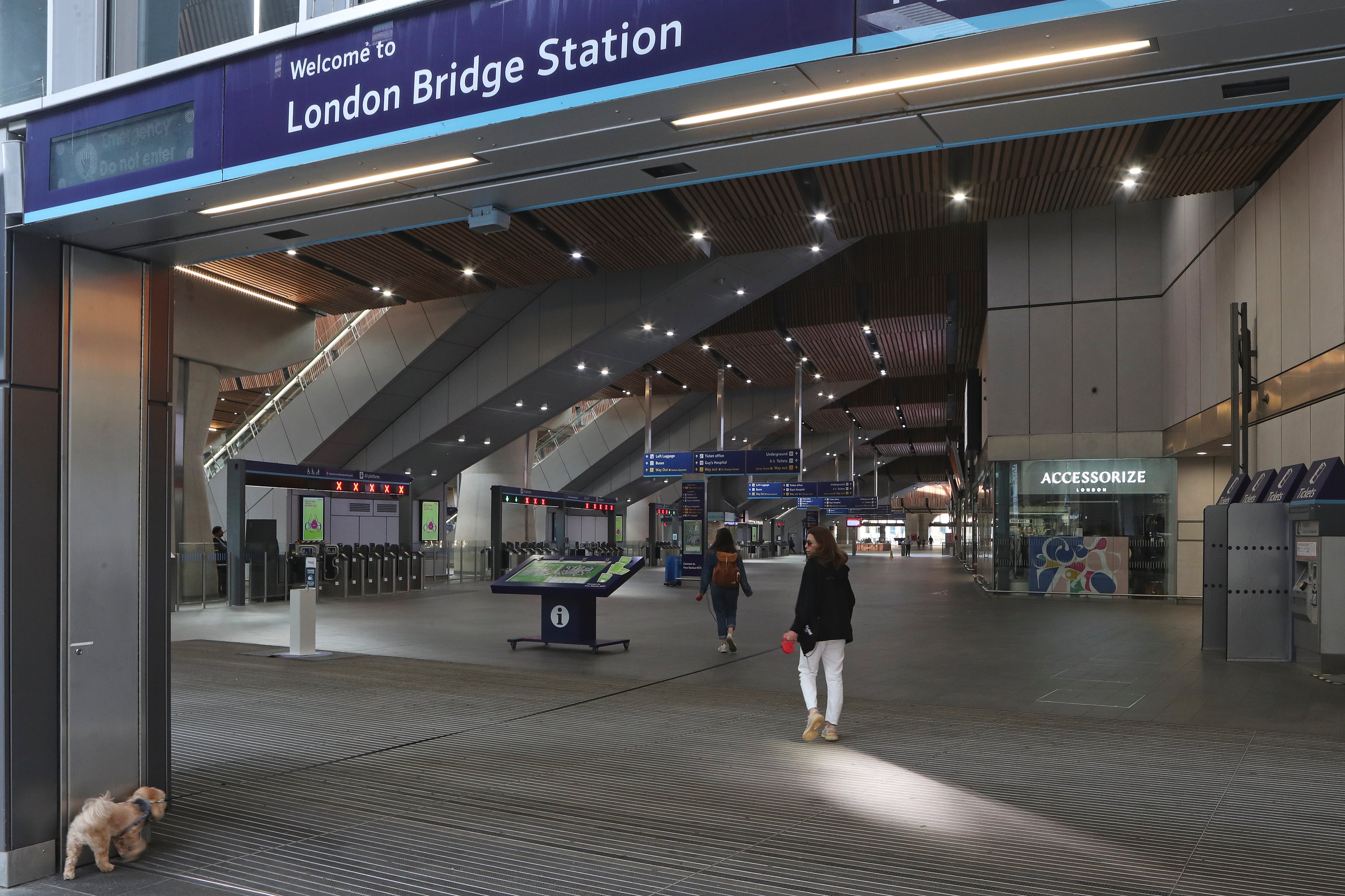
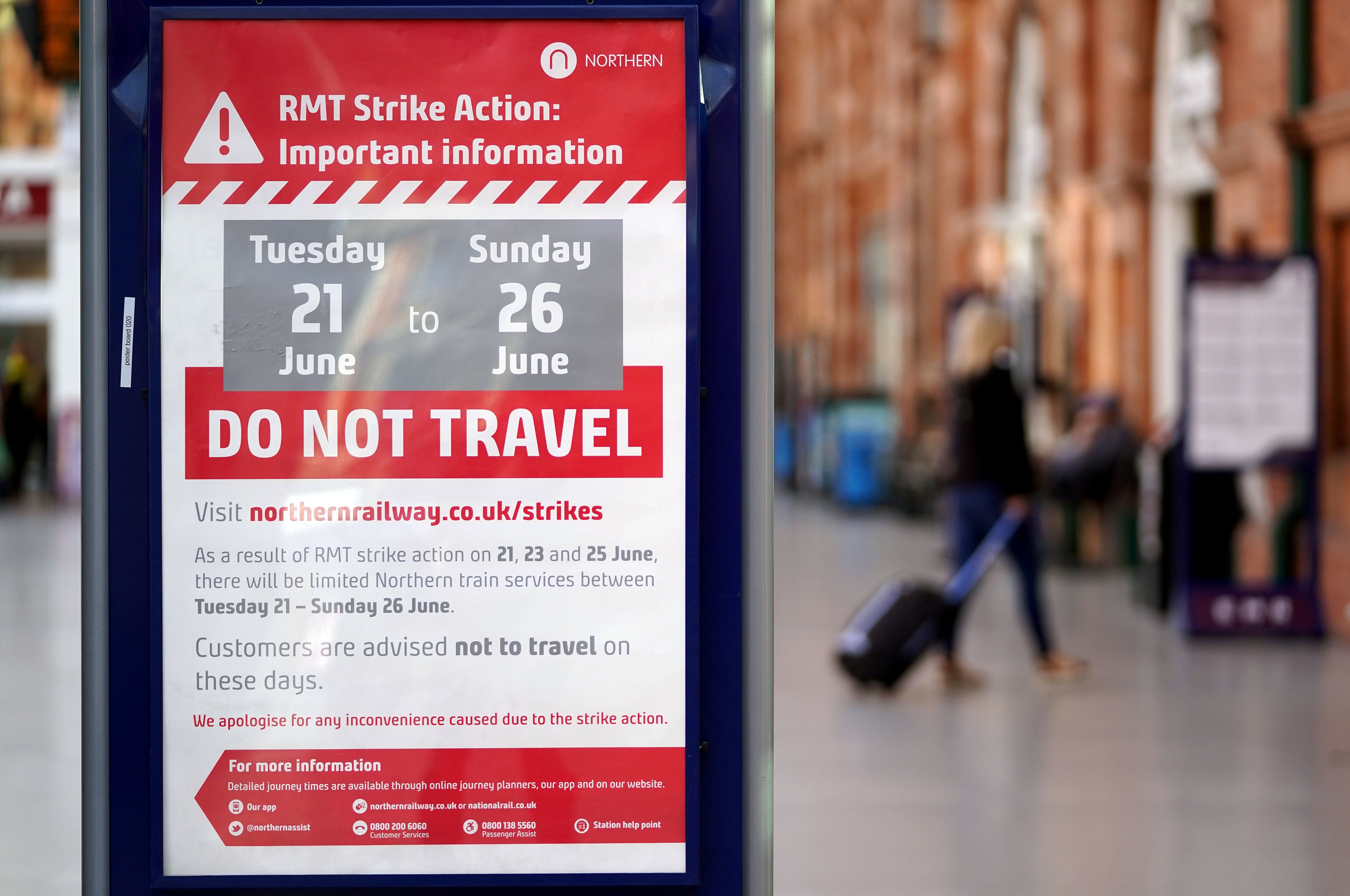
RMT union boss Mick Lynch threatened coordinated industrial action “across every town and city in Britain” on Tuesday morning.
Speaking to Sky news, Mr Lynch said: “If the government doesn’t change direction, I believe more strike actions is inevitable. We as trade unions need to sychronise.”
“If we need to have industrial action, we need to coordinate industrial action in every town and city.”
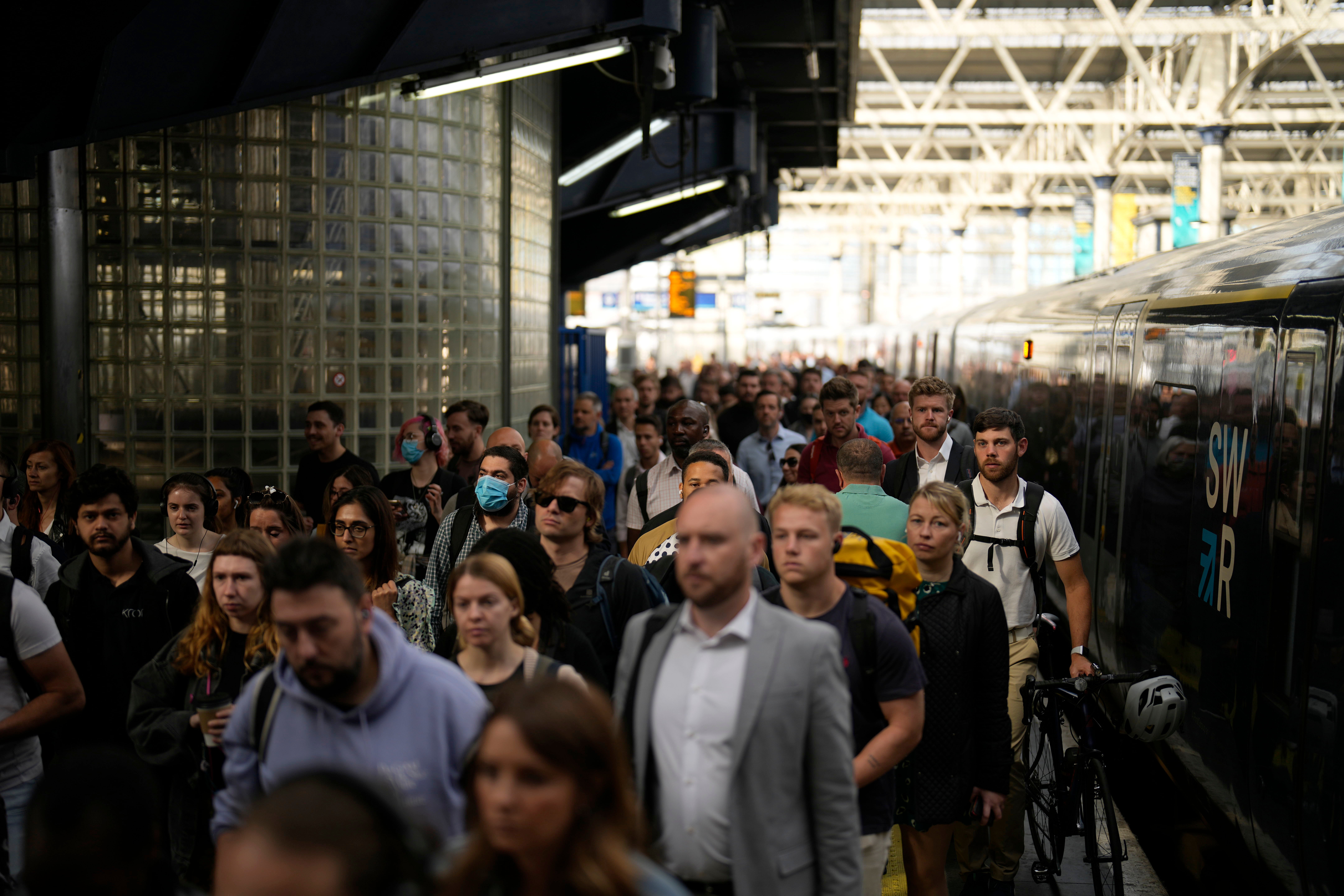
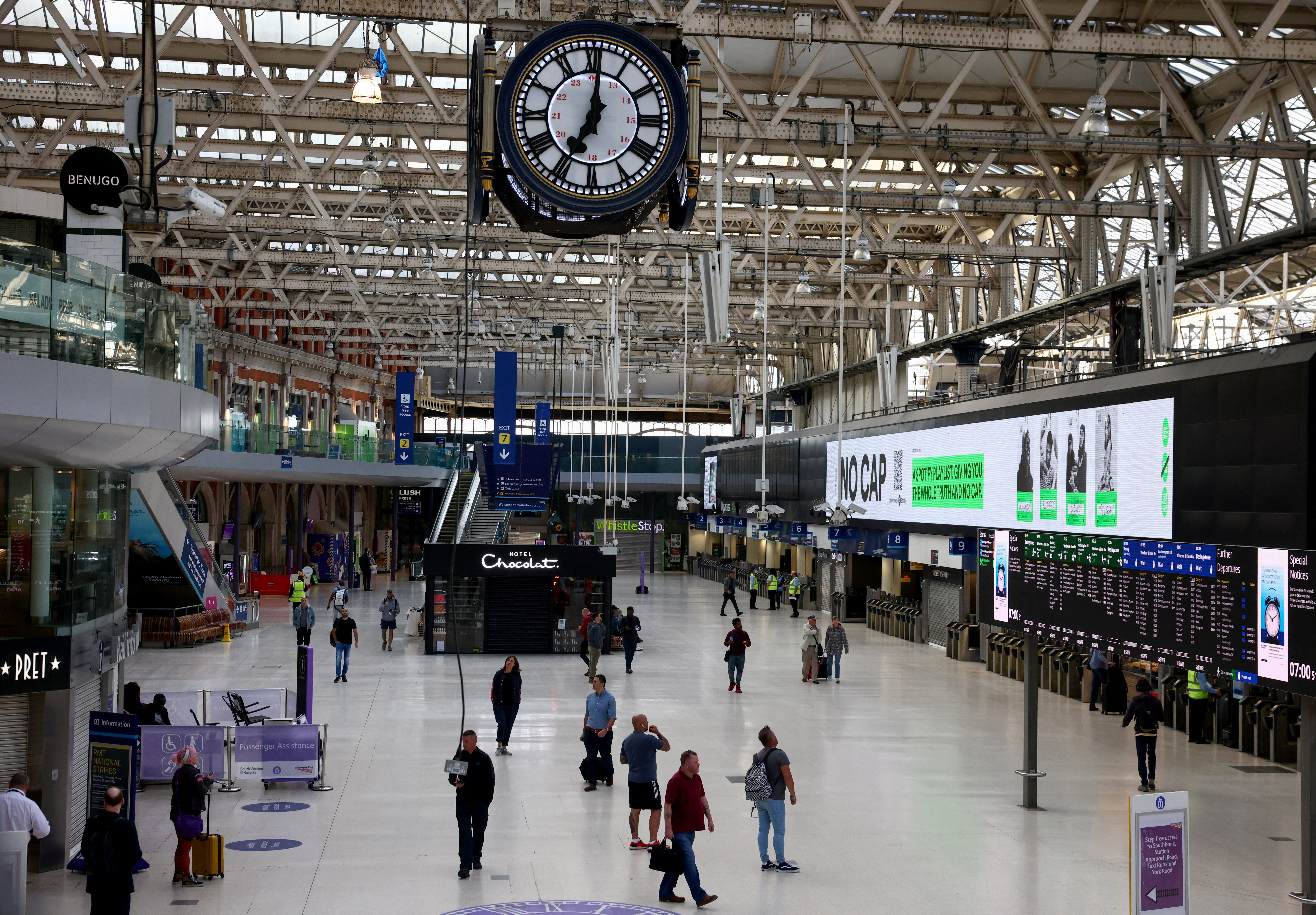
Meanwhile transport secretary Grant Shapps accused Mr Lynch of wanting to be a “1970s union baron” in his media round.
He told LBC: “I can see what’s happening here, their leader says he is nostalgic for the days of union powers and he’s determined to turn himself back into one of those 1970s union barons.”
Mr Shapps warned that ministers could change the law so companies could bring in agency workers to minimise the disruption of the strikes.
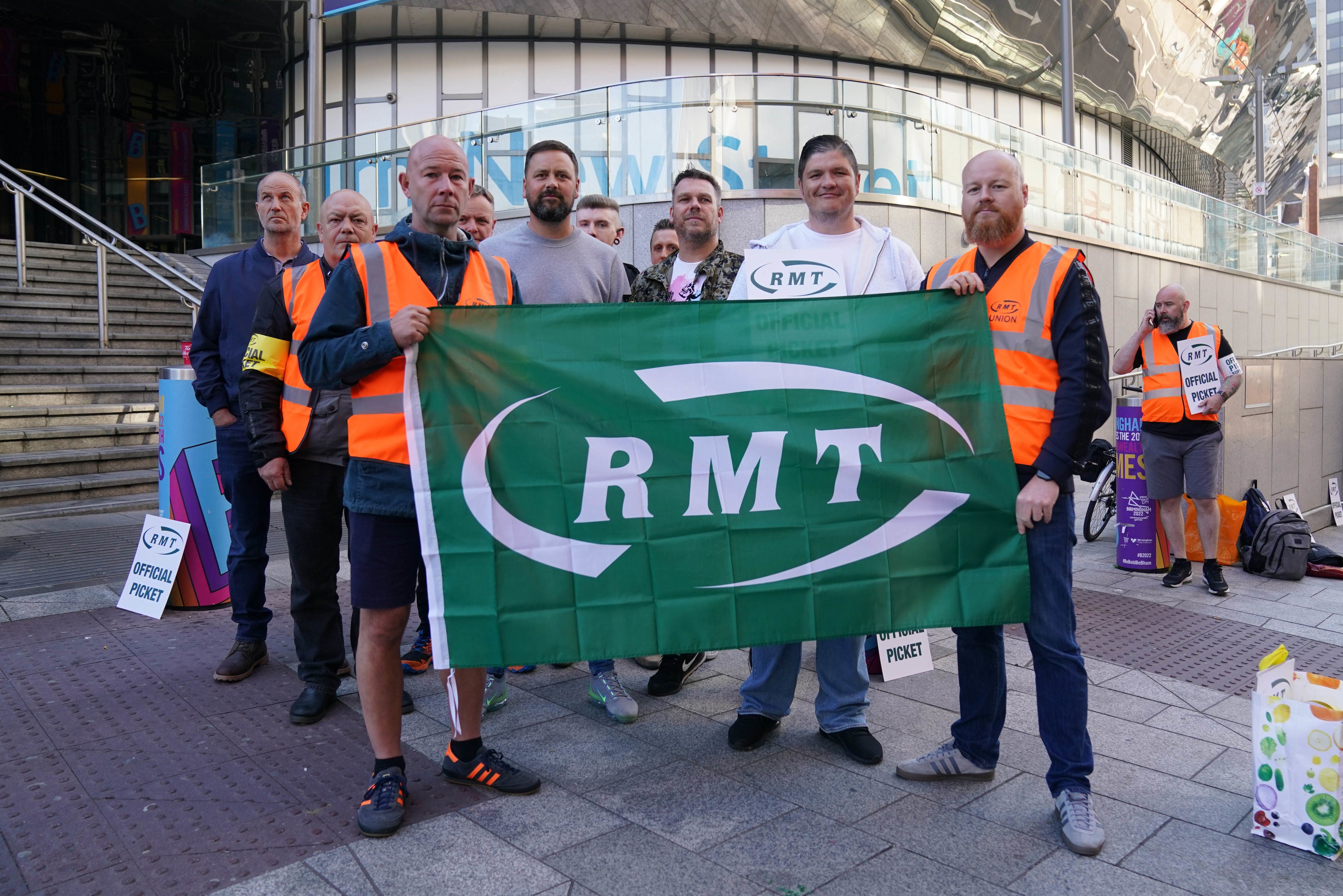
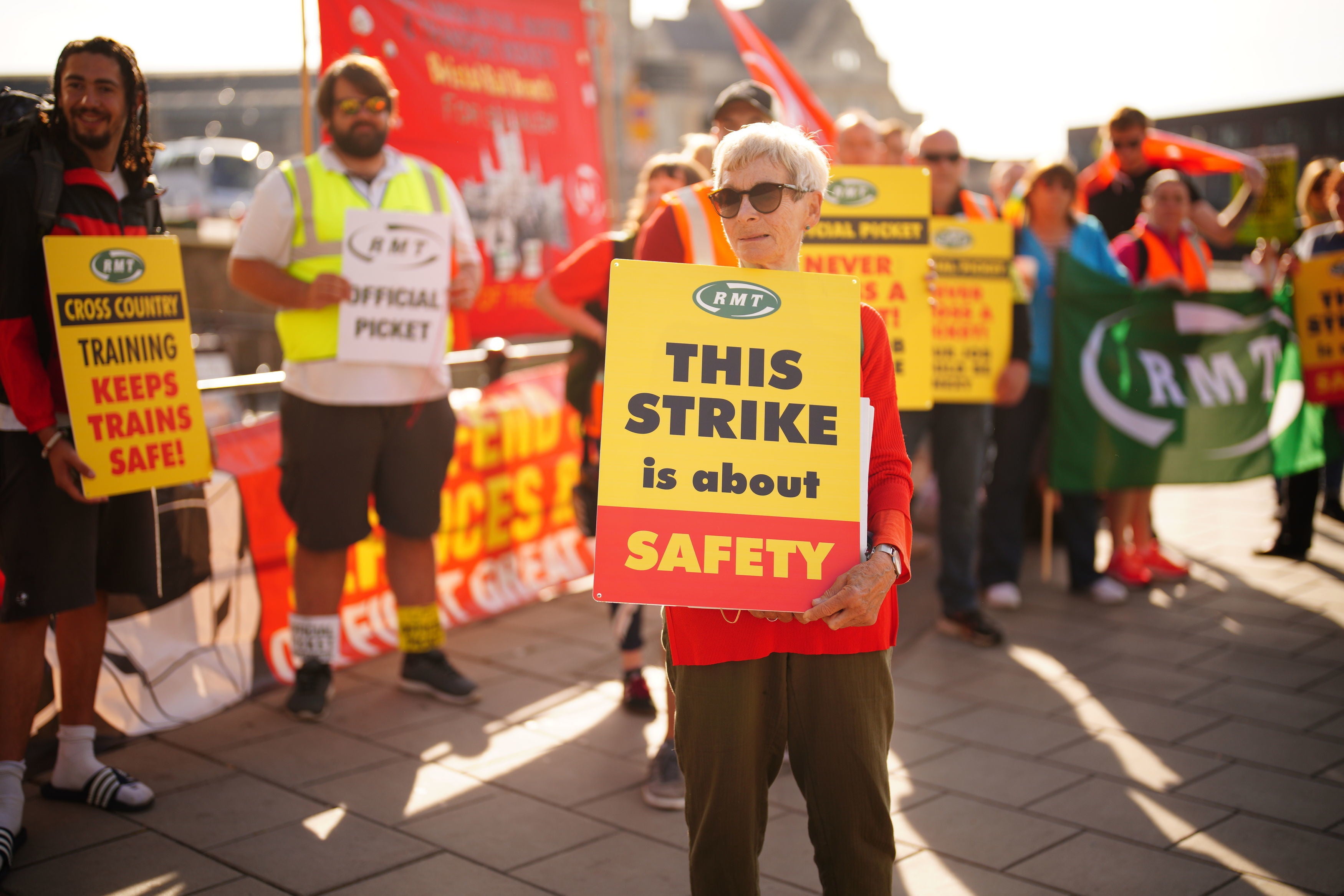
The boss of Network Rail, Andrew Haines, said he was “profoundly sorry” for the disruption faced by passengers.
One passenger, a healthcare support worker in north London, said he was an hour and a half late for work because of the travel disruption.
David Raposo Buzon, who was waiting at a bus stop from 6:30am to make it in for his 7:30am scheduled start, said NHS staff like himself “aren’t able to strike”.
With long queues and packed services, he could not make it to his work until 9am. “I feel ok with people doing strikes, but at the same time I feel angry when I think that NHS workers are not able to strike even if our conditions at work are really bad,” he said.
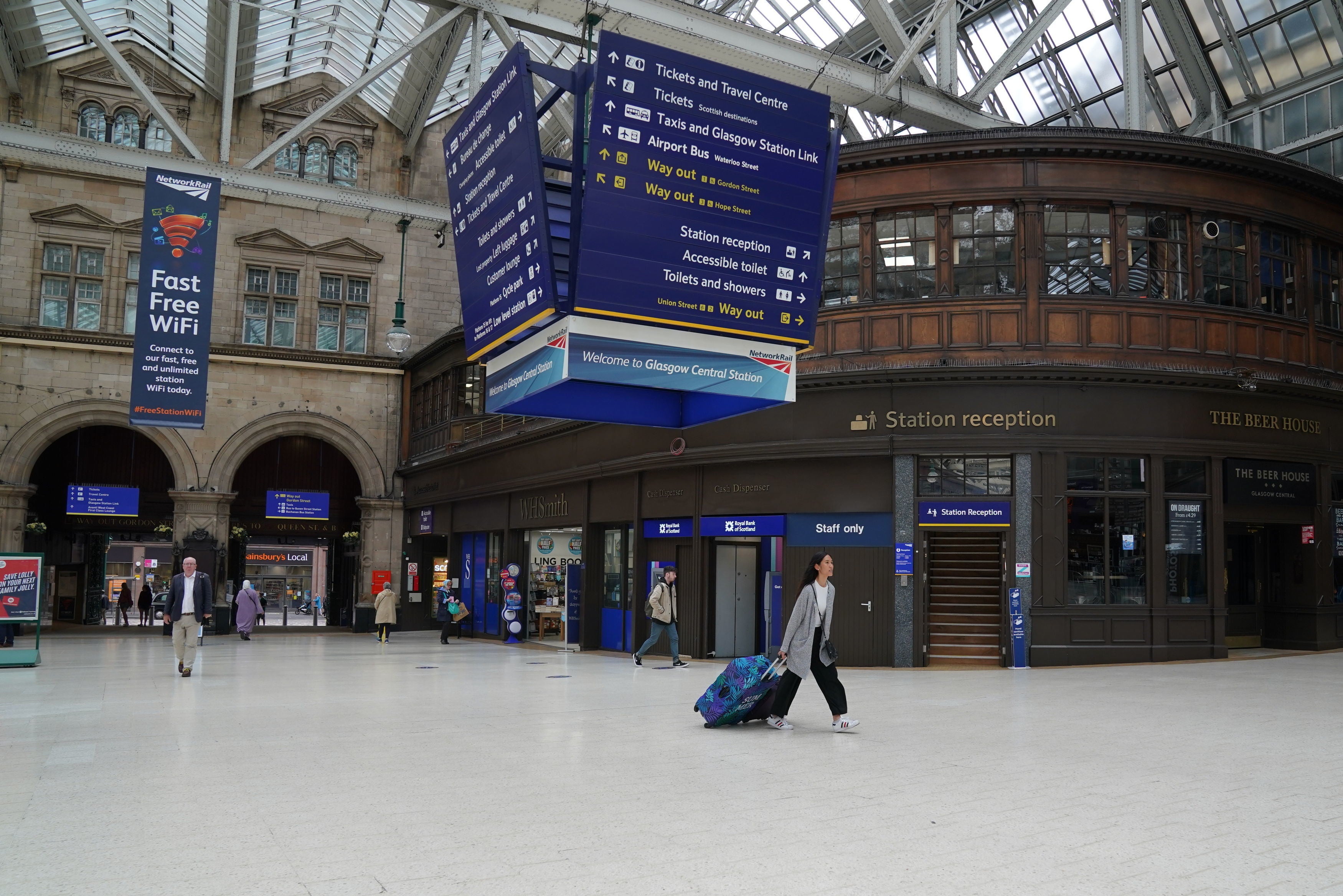
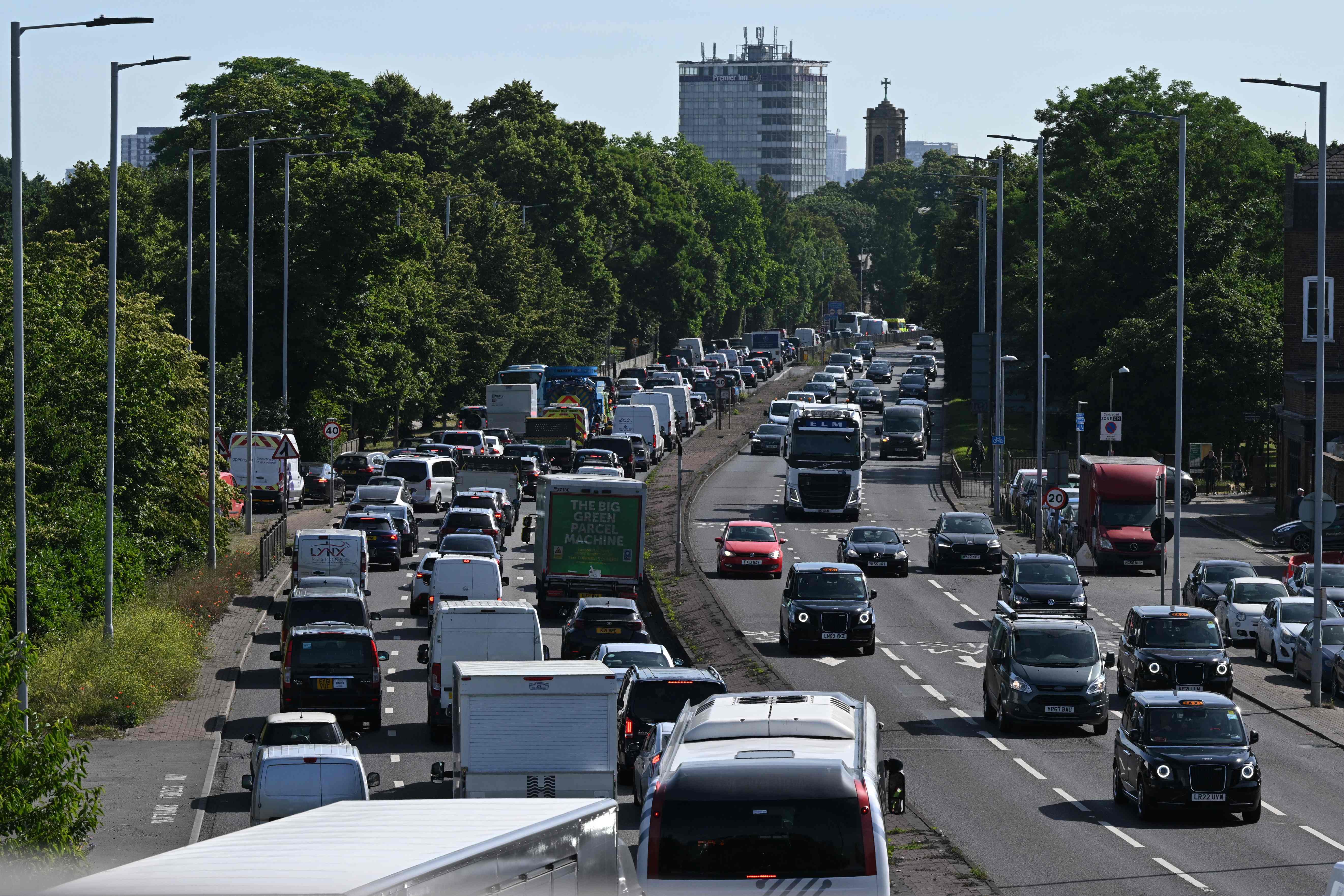
Another traveller, Susan Millson from southwest London, condemned the rail strikes as “outrageous” and “awful”. She said she had been forced to cancel her trip to East Grinstead to see her sister for the day.
Speaking from Clapham Junction station, Ms Millson said that she had hoped her train might be running but arrived to find it had been cancelled.
“I just think it’s outrageous that there is no give and take between the unions and the government. No one is giving any leeway at the moment, it’s awful, it’s just awful,” she said.
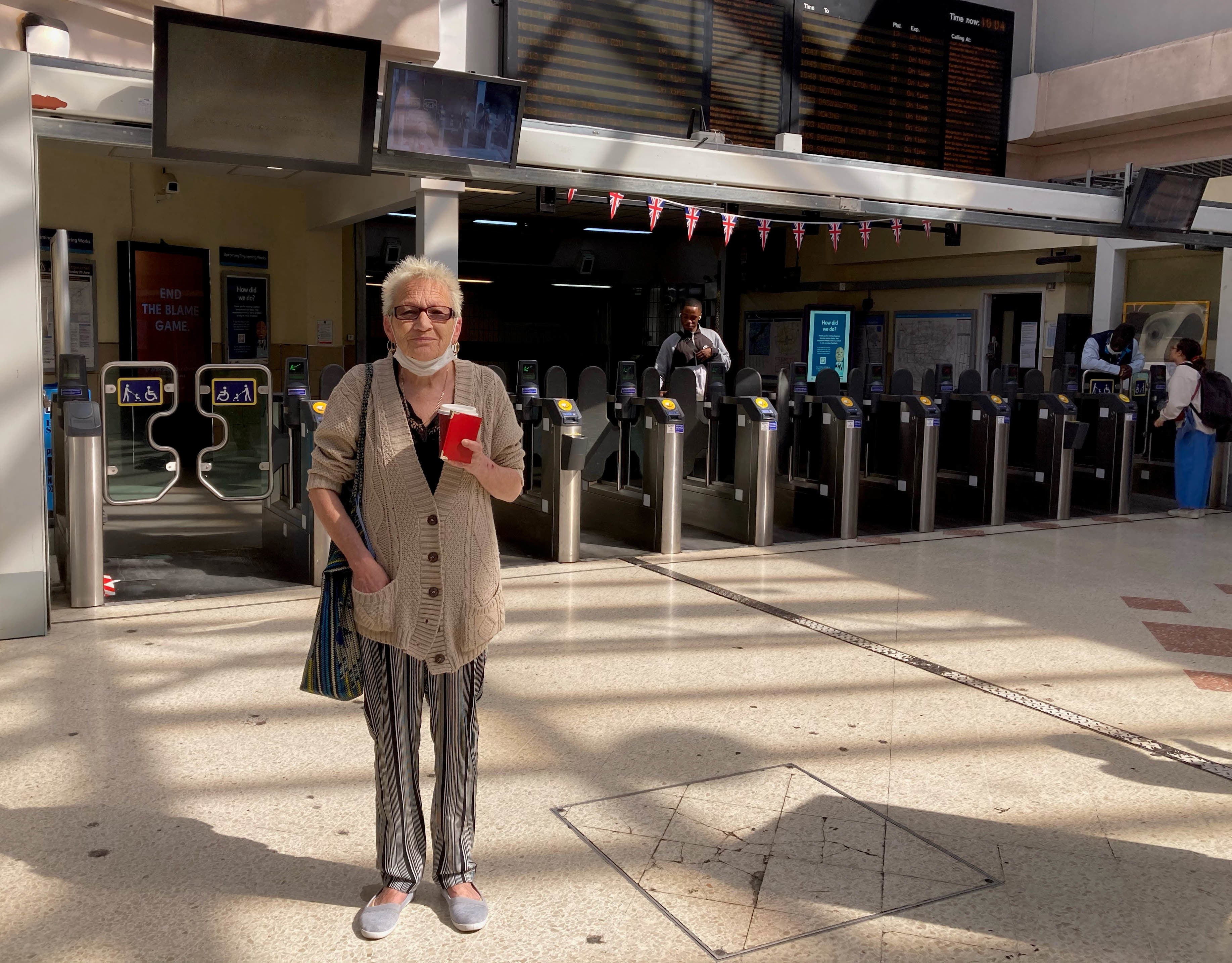
RMT workers formed pickets across the country with strikers pictured in Sheffield, Leeds and Nottingham.
Several Labour MPs showed solidarity with the rail workers with some joining the picket lines.
Ian Lavery, MP for Wansbeck, joined the strikers in Morpeth, tweeting: “Solidarity with the RMT union today and all days.”
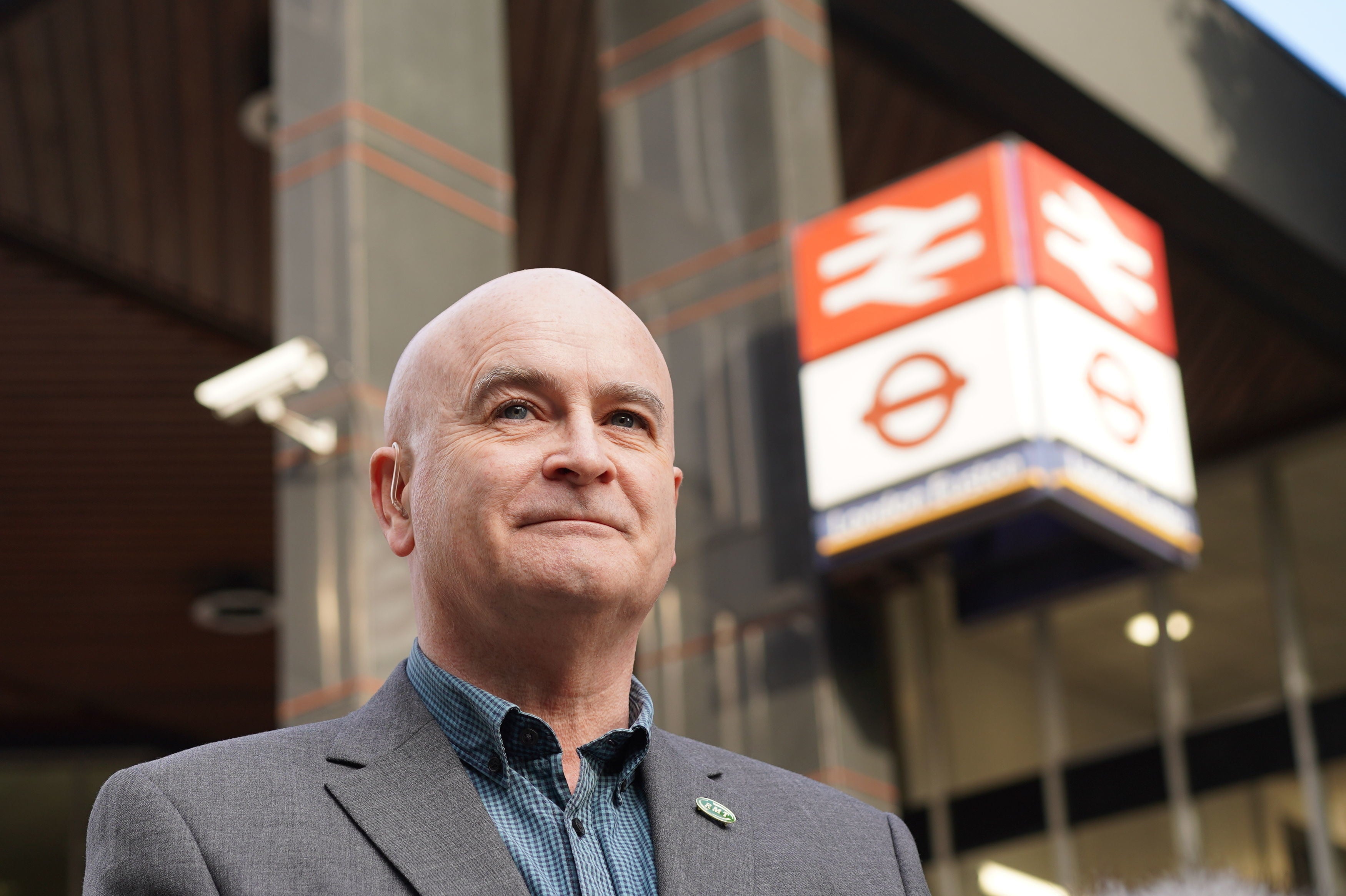
Tahir Ali, MP for Birmingham Hall Green, said he would be joining the pickets later on Tuesday and said: “Solidarity to all those who are out taking action to protect jobs, ensure safety, and win better pay and conditions.”
To add to the shut down, the National Rail website crashed on Tuesday morning with people trying to access the site being presented with an error message.
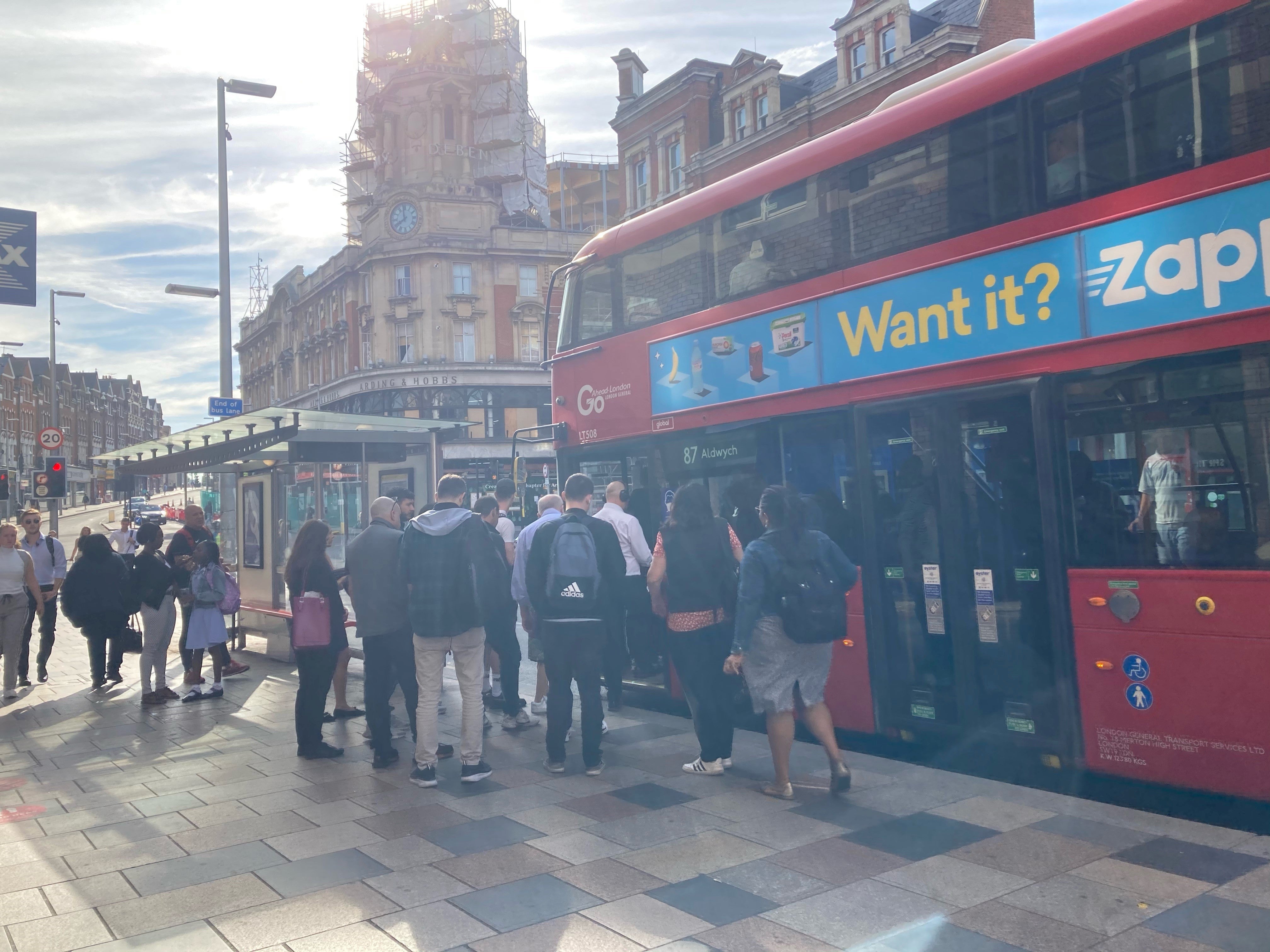
The website for Transport for London was also down.
Chief executive of industry group UK Hospitality, Kate Nicholls, said that the rail strikes will cost Britain’s restaurants and pubs more than £500million.
She said that the shutdown would be felt not only by the workers who can’t get to work but “more importantly their customers not being able to travel”.
“Many of them are shutting early, or are not opening for all the strike days and that means our hospitality workers will not be able to work,” she added.

Join our commenting forum
Join thought-provoking conversations, follow other Independent readers and see their replies
Comments